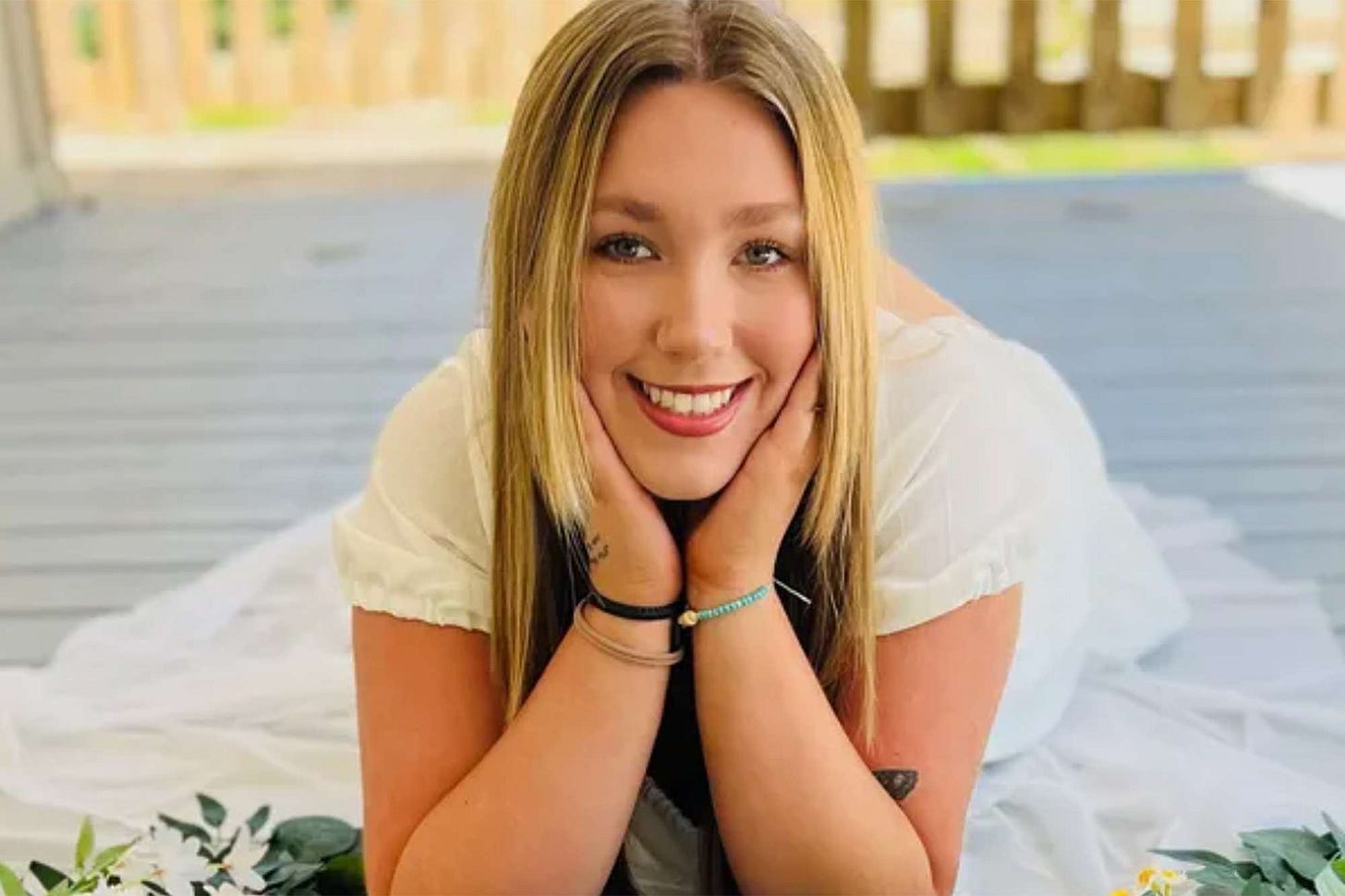Imagine you’re a passenger in a bus that has stopped on railroad tracks. It’s dark and raining, so you assume the driver just doesn’t know what he’s done. You try to tell him to drive forward or move back, but he responds, “We’re fine where we are.”
“No, we’re not,” you say, your voice growing more urgent. “We’re on railroad tracks.”
“You’re crazy. Why do you always have to be so dramatic?”
You look around the bus, analyzing what the other passengers are thinking. They seem unbothered. They stare ahead or carry on private conversations. Some of them are asleep. Fear begins to churn in your gut as you see a yellow glow moving down the tracks in your direction.
“Move the bus!” you shriek. “We’re going to get hit!”
“We’re fine! Stop trying to scare the other passengers.”
The lights are getting closer. The deep, throaty horn of the train blares. Suddenly you realize there are people on the train too, and everyone will perish if you don’t do something. Desperate, you scramble across the lap of the bus driver to try to take over the wheel, but he pushes you away.
“We’re staying right here. If you don’t like it, leave!”
He opens the door to the bus and pushes you out. You’re relieved to be in the fresh open air, but terrified for the people inside. Through sheets of rain, you bang on the windows, begging them to exit the bus, but they wave you off. Finally, with one more blare of the train horn, you helplessly watch the ensuing crash.
In Greek mythology, Cassandra was the daughter of the king and queen of Troy. Intelligent and beautiful beyond compare, she was a priestess for the God Apollo, who gave her the gift of prophecy, but when she rejected his romantic advances, he cursed her to never be believed.
Cassandra’s sense of foresight was powerful. She worked hard to warn the people around her of what was to come, but they thought she was crazy, accused her of hysteria, and locked her away. She’s often portrayed in art tearing at her bright red hair in madness.
When Cassandra’s brother Paris planned to capture Helen, the most beautiful woman in the world, she tried to stop him. She could see that this act would bring on the destruction of Troy, but Paris ignored her. Again, when the Spartans offered Troy a large wooden horse as a gift, Cassandra warned them not to accept it. They didn’t listen. Was it lust and greed? Or was it the normalization of silencing wise, intuitive women that closed their ears? Why do we let our sons lead us into war and destruction instead of heeding the warnings of our daughters?
Troy fell as a result of its unwillingness to hear Cassandra.
In Sharma Shields novel The Cassandra, Mildred is a young woman who takes a secretarial position at the secretive Hanford research center at the height of World War II. She’s told the secretive work the company does will shorten the war. Mildred feels important, invaluable. But at night she becomes plagued by grotesque nightmares of bodies shriveled by fire, faceless children, and endless suffering. We learn alongside Mildred that her company is manufacturing plutonium for the atom bomb.
Mildred had always been dismissed — by an overbearing mother who belittled her, by classmates who called her Mad Mildred, by men who were hostile toward intelligent women. It’s easy to see her reluctance to speak truth to power. Yet Mildred’s visions grow worse by the day. She begins to talk about the scenes of destruction in her mind, only to be waved off.
Throughout the novel, Mildred is an outlier. Among the other women. Among the men in her company. Within her family. Yet she sacrifices the comfort of social acceptance and professional respect in order to issue her warnings. We feel Mildred’s frustration as she tries again and again, only to watch her premonitions become real.
I should have known what the outcome of the election would be when I woke up early Tuesday morning. As my eyes adjusted to the dim morning light, I struggled to breath, like a hand was around my throat. The sides of my face felt wet from tears. My stomach felt clenched. I replayed the dream I’d just woken from:
We lived in some sort of high-rise apartment in a large U.S. city. I’m not sure where my husband and son were. The dream was about my daughter and I. Everything around us was glittering and spectacular. As we stood in a gilded lobby surrounded by light, I realized I’d forgotten something upstairs and pressed the button for the elevator.
“You stay here, it will be faster if I go alone,” I told my daughter. I went upstairs, then back down to the lobby to collect her. But when I got there she was gone.
The rest of the details of the dream are fuzzy. I called the police. We organized a search party. I chose clothes from her laundry basket for the dogs to identify her scent. I spent most of the day on the floor in her room, wishing I’d never said anything about how messy it was or how many toys she had. Days passed, and with them went the hope that I would ever see her again. People told me to keep my spirits up, but deep down I knew that not only was she gone, but the darkest, most evil things imaginable had happened to her.
I woke up, but the relief I usually feel after a nightmare wasn’t there. Outside I appeared positive. Inside, I felt crumpled. I woke my kids up. I made breakfast. I did my work. I pushed aside the sinking, foreboding feeling. I watched the news, chained to my usual naive optimism that helps me feel hopeful until I’ve been presented with evidence to the contrary.
“It was just a dream,” I told myself. “Just a dream.”
Candace Fails always considered herself pro-life. She thought abortion activists were overreacting when they said criminalizing abortion would put women’s lives at risk. When her 18-year-old daughter Neveah got pregnant, she didn’t even consider having an abortion. Even if she wanted one, the family lived in Texas, so it was impossible.
The day of Neveah’s baby shower was miserable. Neveah had a severe headache, was nauseous and vomiting. Her boyfriend took her to the hospital, where she vomitted into a plastic pan while waiting to see someone. She was discharged and prescribed antibiotics.
That night, Neveah’s symptoms persisted, so her mom took her to a different ER where she hoped to receive better care. An OBGYN said she showed signs of sepsis, but because of Texas’ abortion ban, the fetus had a heartbeat, so doctor’s sent her home with more antibiotics. She couldn’t walk to or from the car because she was so weak.
The next morning she was back in the hospital. Blood poured from her legs and mouth as her mom watched helplessly and pled with doctors to “do something.” When they finally could confirm fetal demise, it was too late to save Neveah.
“Fails recalled her daughter sitting up in the hospital bed as black blood ran from her mouth and nostrils, telling her, ‘You’re strong, Nevaeh. God made us strong.’
Crain died hours later in the intensive care unit.”
Fails is trying to find a lawyer to sue the hospitals for negligence, but she’s been unsuccessful because the hospitals interpreted Texas law correctly.
Already on social media, I’m getting people who insist I’m overreacting or just trying to cause trouble. But I read Project 2025. I know what’s in store. I’ve done my best to warn everyone.
They ignore me to their own peril.
They knew, they knew, they knew the whole time
That I was onto something
The family, the pure greed, the Christian chorus line
They all said nothing
Blood's thick but nothing like a payroll
Bet they never spared a prayer for my soul
You can mark my words that I said it first
In a morning warning, no one heard
—Taylor Swift, Cassandra









For a real life happening NOW look at what is about to happen in America check out this article from Common Dreams. All the horrors you could possibly image are about to come to America courtesy of the Heritage Foundation, Trump, Musk, Bannon and all the rest. NO ONE and NO family will escape the damage it will do - even all those people who voted for Trump (except of course the billionaires, they will do just fine) Hopefully Americans will wake up to this nightmare and throw off the people who are about to impose their will on the masses. The Argentina example is bleak - and Milei got his advice from the Heritage Foundation.
Milei's Argentina Offers Terrifying Glimpse of Trump's Project 2025
Elon Musk has already told you what Trump has planned will cause "temporary hardship." Argentinians living under their new libertarian masters can tell already you already what that pain and suffering feels like.
Diana Cariboni
Nov 07, 2024
OpenDemocracy.net
2
As the world absorbs the shockwave of Donald Trump’s win in the US presidential election, the playbook for his second term, designed by a handful of right-wing extremists, is already underway in Argentina.
Tears and gratitude, Tiffany.